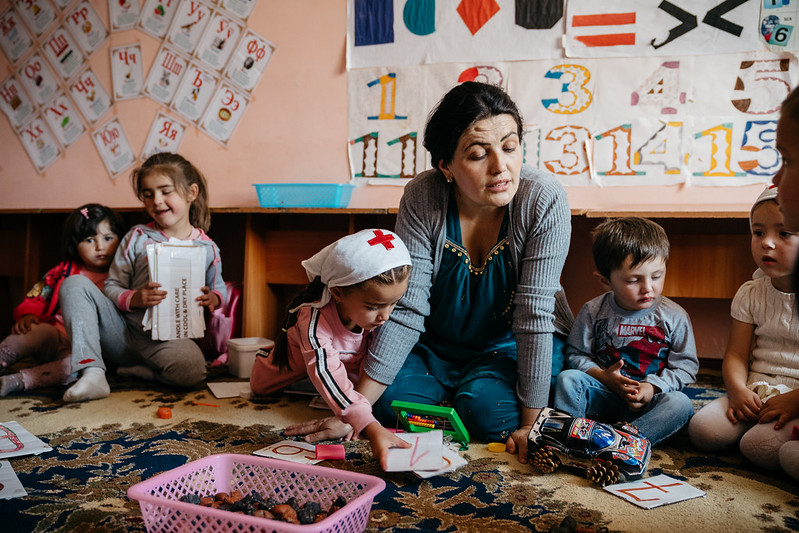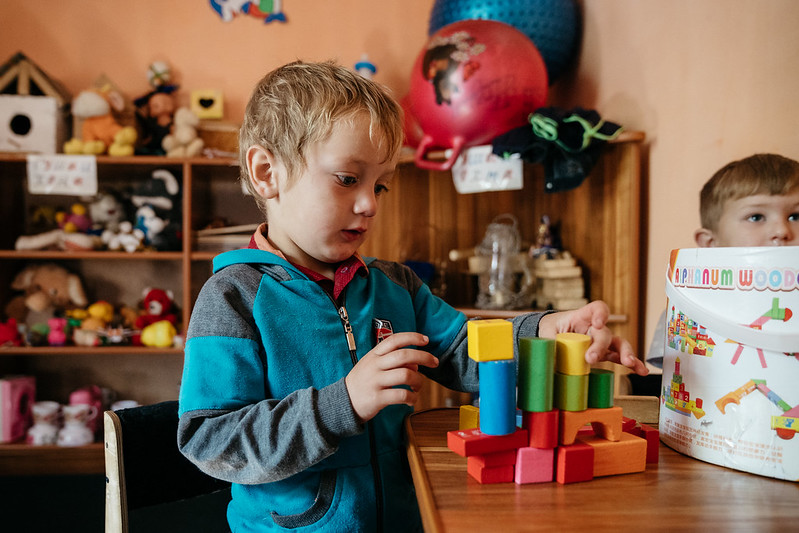As part of a wider programme that aims to provide support to unpaid carers – including young parents – Oxfam and the Aga Khan Foundation have established five Early Childhood Development (ECD) centres in Khatlon province in Tajikistan.
AKF and Oxfam began implementing the second phase of the “Care Work and Empowerment: Creating the Conditions for Equal Opportunities in Rural Areas of Tajikistan” project in March 2020, with support from the Islamic Development Bank and the Government of Tajikistan.
The programme aims to recognise, reduce and redistribute unpaid care work in rural communities. To aid these efforts, AKF and Oxfam established these ECD centres, helping reduce the time spent on childcare for women in the community.

Sanavbar, whose daughter attends an ECD centre in Dahana, spoke of how the ECD will help free up her time to pursue other activities. “I am pleased my children will attend the ECD. I know they will learn necessary skills before starting school, socialising with other kids and receiving quality education from trained teachers at the centre. I feel secure about them and I can now take more time to work or rest,” she said.
Evidence from ECD programmes worldwide has proven that intervention in early childhood provides a unique opportunity to avoid future learning or development difficulties. To ensure that children aged three to six have access to quality learning opportunities, and to positively influence the context in which they grow, AKF and various partners have established a total of 311 ECD centres in remote Tajik communities to date.
“Our aim is to give children the best start in life by helping them to achieve their full potential, here and in the future.”
Gulbahor Abdurakhmonova, ECD teacher
Further replication of this model into new regions and contexts is essential to maintain a good trajectory for growth in early learning and development across Tajikistan. It is for this reason that AKF partnered with Oxfam to extend the ECD centres into the Khatlon Region. This is the next stage of an initiative to support state education programmes, as well as improving the welfare of rural populations.

Gulbahor Abdurakhmonova, one of the ECD teachers based in Dahana, spoke about the growing demand for childcare and on the importance of well trained professionals to cope with that. “Our class is equipped with all the equipment and learning resources we need, and the children are excited to be here. I’m also very grateful to our trainers from the Institute for Professional Development who taught us about ECD, and about how learning through play helps to develop the children’s cognitive, social and emotional skills. We are seeing a growing demand for childcare services in our neighbourhood, with other parents now asking for the school principal to create an additional class. Our aim is to give children the best start in life by helping them to achieve their full potential, here and in the future.”




